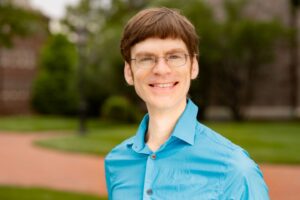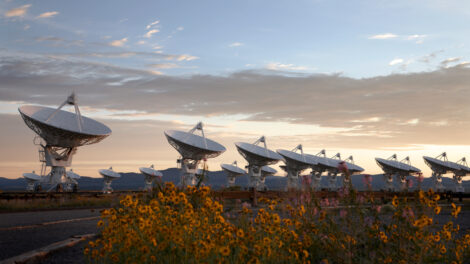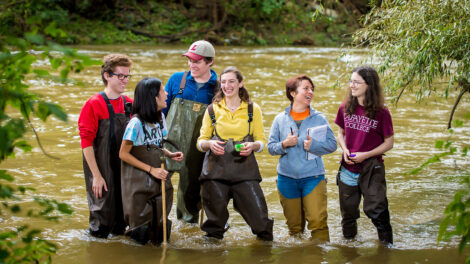Physics Prof. Brooks Thomas receives NSF grant
By Bryan Hay

Brooks Thomas, assistant professor of physics, has received a $150,000 National Science Foundation grant to support his theoretical particle physics and cosmology research over the next three years.
The ultimate goal of Thomas’ research efforts is to shed light on the nature of the as-yet mysterious form of matter in the universe, which is commonly called “dark matter,” and to help fill in the gaps in understanding what happened during the first few seconds after the Big Bang. NSF grants supporting particle theory are highly competitive, and this grant represents an 11% increase in funding relative to his previous NSF grant, which was awarded in 2020.
“As a theoretical physicist, my role in the physics ecosystem is to help interpret and make sense of the data obtained by my experimental colleagues, and to suggest new experimental designs or analysis techniques which could potentially be used to distinguish between different theories of physics,” says Thomas, Principal Investigator for the NSF grant.
“Much of my work along these lines involves developing and running computer simulations of extreme environments, like the early universe or the inside of a particle accelerator,” he adds. “This NSF grant will help me to acquire computing resources that will enhance this aspect of my research. Moreover, this grant will help to support my travel to conferences and workshops during my upcoming sabbatical leave.”
By interacting with colleagues and sharing findings, he says he hopes to generate new research ideas and develop new collaborations in which he and those colleagues can pool their expertise and explore these ideas collaboratively.
“One of the most important things that the funds associated with this grant will allow me to do is to support additional Lafayette undergraduates as EXCEL Scholars both during the summer and academic year,” says Thomas, adding that the NSF grant will broaden the scope of research opportunities for Lafayette students across campus.
“Moreover, by attending conferences and workshops and keeping current with developments in particle physics, I’m better equipped to provide the students in my courses with a window into the exciting things that are going on in the field, and what discoveries might be just around the corner,” he says.

